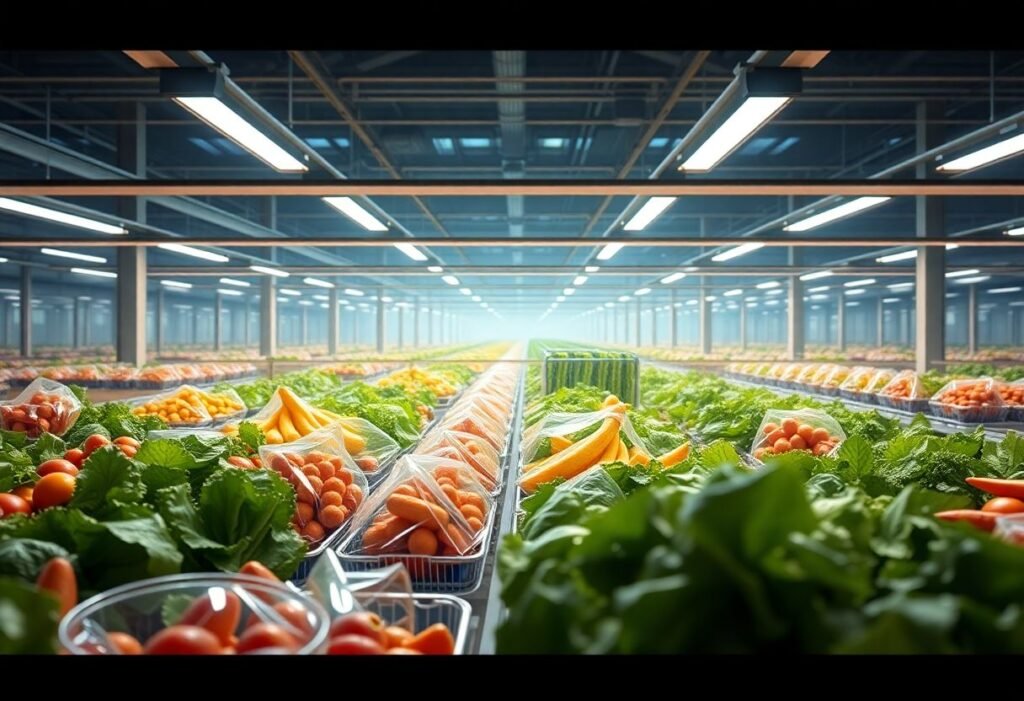The future of biotechnology in food production is evolving rapidly, presenting innovative solutions to global food challenges. As we face the increasing demand for food amid climate change, biotech offers a path towards sustainable practices that enhance productivity and safety.
Advancements in Genetic Engineering
One of the most significant areas of biotechnology innovation is genetic engineering. Techniques such as CRISPR allow scientists to edit the genetic makeup of crops, enhancing their resistance to diseases, pests, and extreme weather. By modifying the genes responsible for these traits, we can create crops that not only yield more but also require fewer pesticides and fertilizers. This shift toward genetically engineered varieties could lead to a more sustainable food system that minimizes environmental impact. With these advancements, producers can secure food for an ever-growing population.
Lab-Grown Meat and Its Potential
The concept of lab-grown meat, or cultured meat, represents a groundbreaking innovation in food production. Through cellular agriculture, companies can produce meat without raising animals, addressing ethical concerns and reducing the carbon footprint associated with livestock farming. Cultured meat has the potential to revolutionize the food industry by providing an alternative protein source that is both sustainable and cruelty-free. As research progresses, lab-grown meat could become a mainstream option that meets dietary needs while being environmentally friendly.
Improving Nutritional Value with Biotechnology
Biotechnology is not only about increasing crop yields; it also focuses on enhancing the nutritional value of food. Biofortification, the process of increasing the nutritional quality of food crops through biotechnology, has shown promise in addressing malnutrition worldwide. Crops like Golden Rice, enriched with Vitamin A, can help combat deficiencies in regions where conventional diets lack essential nutrients. Through innovative practices, biotech can help ensure global health by providing nutritionally enhanced foods that are accessible to all populations.
Sustainable Practices through Agroecology
Agroecology combines agricultural practices with ecological principles, creating a harmonious relationship between food production and the environment. By utilizing biotechnological methods, agroecological systems can improve soil health, conserve water, and support biodiversity. Innovations such as cover cropping and integrated pest management use biotechnological advancements to promote sustainable agriculture. This approach not only addresses food production but also ensures that ecosystems remain intact and resilient against climatic stressors.
The Role of Biotech Start-ups
Start-ups are playing a crucial role in the biotech sector, driving innovative solutions in food production. These agile companies often pursue groundbreaking research and development in agricultural biotechnology, focusing on novel applications and technologies. They bring fresh ideas to the market and often collaborate with larger corporations to scale up their technologies. This vibrant environment fosters innovation and pushes the boundaries of what is possible in food production, facilitating a more dynamic and responsive food system.
Regulatory Challenges and Opportunities
While the future of biotechnology in food production is bright, it is not without challenges. Regulatory frameworks vary significantly around the world, affecting how biotech products are developed and introduced to markets. Navigating these regulations is crucial for companies looking to bring their innovations to consumers. However, these challenges also present opportunities for advocacy and education about the benefits of biotechnology in addressing food security. By improving public understanding, stakeholders can facilitate smoother pathways for innovative products.
Disclaimer: The information in this article is for educational purposes and should not be considered as professional advice.





















